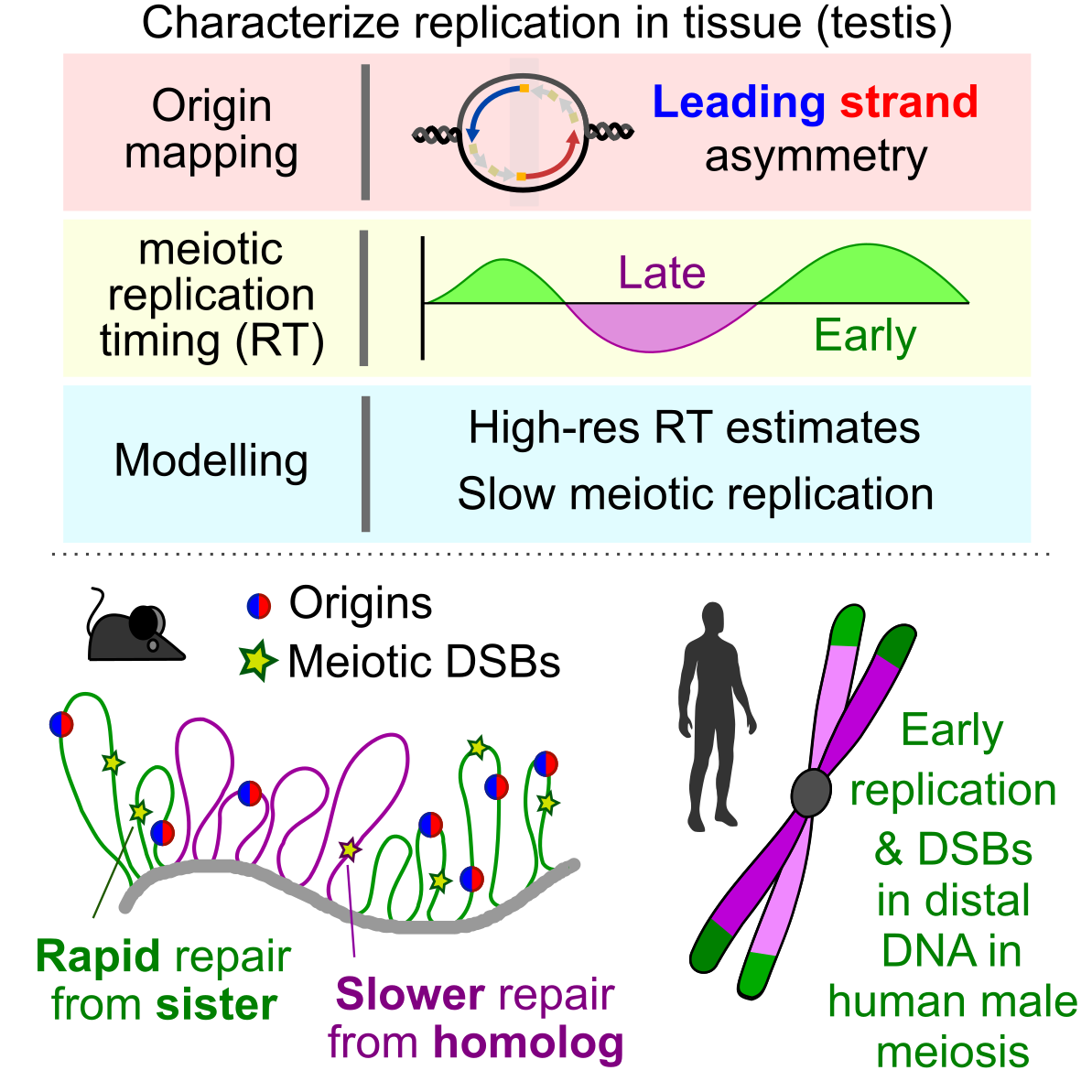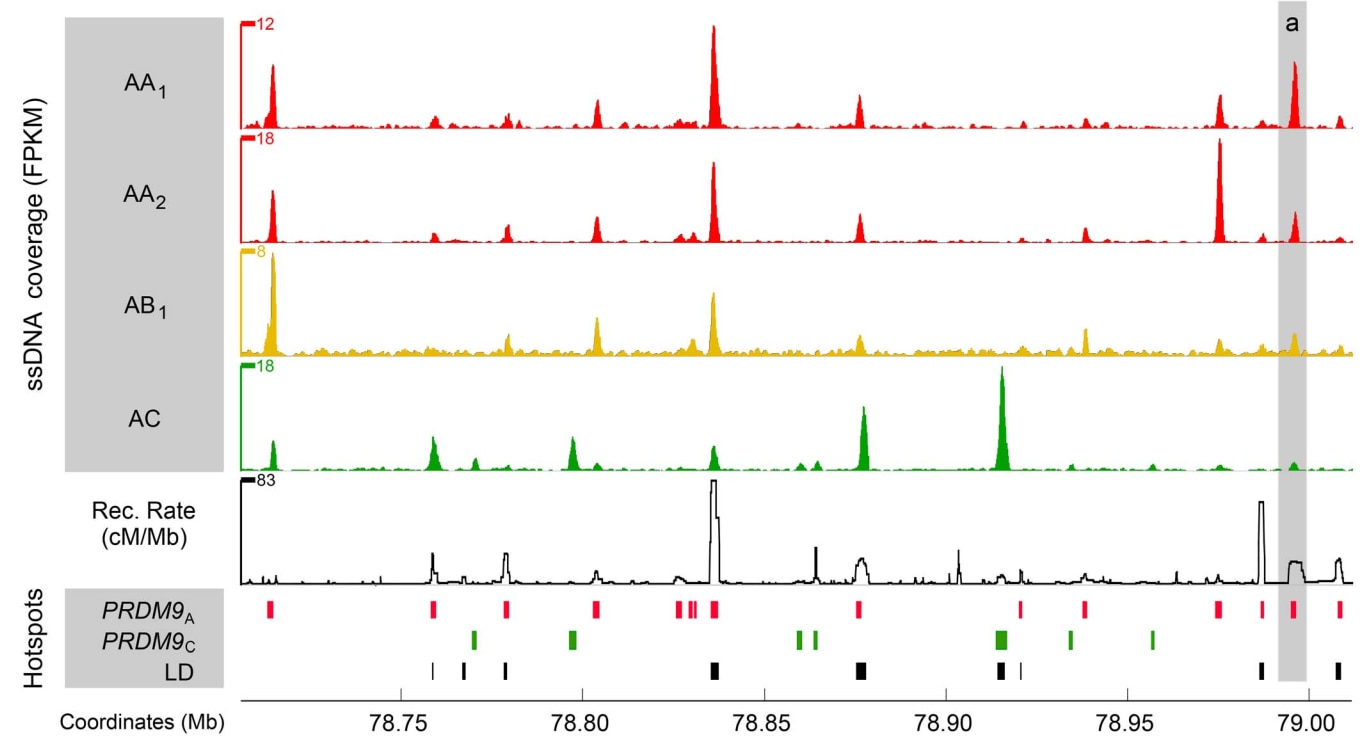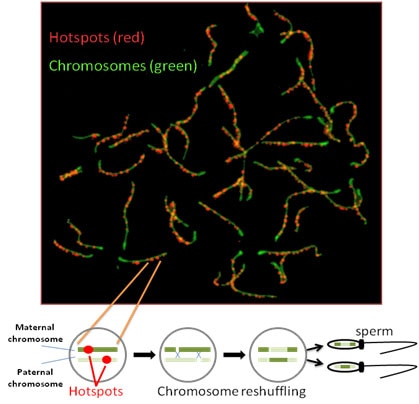About Our Research
The Genetics and Biochemistry Section studies the biochemistry, molecular, and cell biology of meiotic (homologous) recombination in mice and humans. Our focus is on understanding the biology of genetic recombination and to devise new strategies to manipulate complex genomes in vitro and, in the future, in vivo. Specific projects include biophysical and structural studies of proteins, protein domains and DNA-protein complexes involved, gene rearrangements in eukaryotes and, most recently, mouse and human meiosis and evolutionary genomics. Current interests include the study of Spo11, the protein responsible for the hundreds of developmentally programmed breaks in meiosis, what determines where these breaks are made and where crossovers are located, how homologous chromosomes find each other and how meiosis has shaped the sex chromosomes.
Research Images




